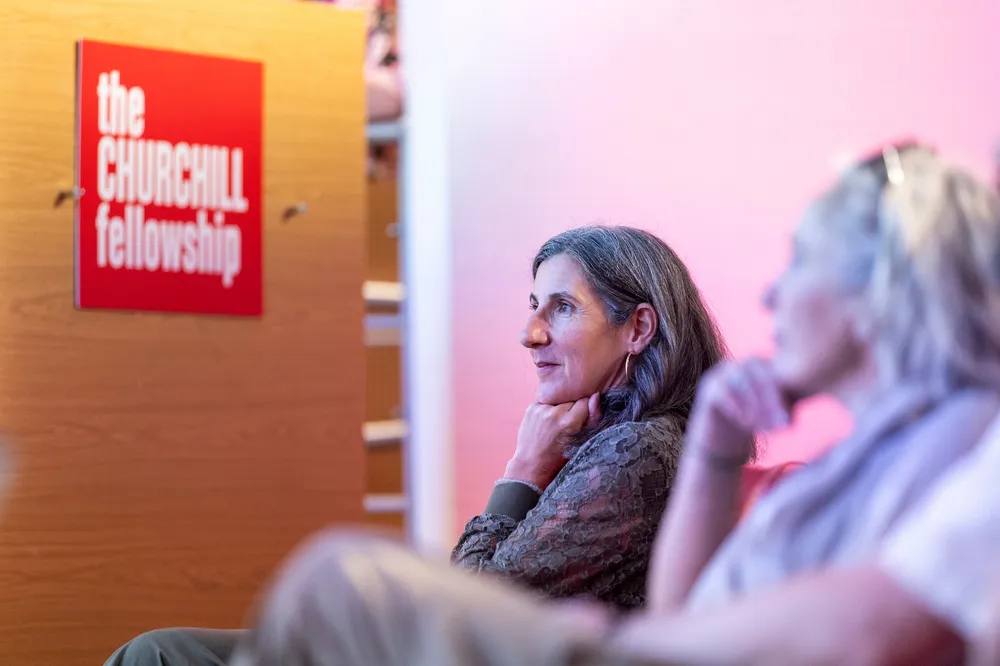From idea to award – what we learned from last year’s Churchill Fellowship applications
Abigail Campbell, Head of Fellowship, reflects on what the 2025 applications tell us – about our applicants, the appetite for change in the UK, and what makes a strong application.
Last year we saw over 1,200 people apply for a Churchill Fellowship, sharing their ideas for learning from the world to make change happen here in the UK.
Over nine weeks, from September to November 2024, people from across the UK sent in applications across 11 programmes, with topics ranging from education to the environment. In the end, 118 Fellowships were awarded.
In this blog, we share what the 2025 application round showed us – including who applied, what they wanted to explore, and what helped ideas stand out. We’re continuing to reflect on what the data tells us, and how we can reach even more people.
Who applied – and how did they hear about us?
Most applicants were aged between 26 and 55, with the highest number of applications coming from London. We noted fewer applications from the East of England, East Midlands, and Yorkshire and Humber, and we’re keen to make the opportunity more accessible across the UK.
It’s clear that Fellows play a vital role in reaching new applicants – most people heard about the Fellowship from someone who had done it themselves. And 15% of applicants had applied before – a reminder that many people come back with stronger ideas each year.
Where did they want to go?
Across all programmes, the USA was the most popular learning destination, followed by Australia, Canada, and several European countries including Sweden, Denmark, and the Netherlands.
Some applicants planned to learn face-to-face, others online – or a mix of both.
Which programmes were most competitive?
Our Open category remains hugely popular. Open Health and Wellbeing received the most applications, followed closely by Arts and Communities.
What happens after you apply?
All applications are first reviewed by our staff team to check eligibility and assess them against both programme-specific and general criteria. This year, 800 applications were longlisted and passed to external panellists – many of them Fellows – who shortlisted 179 candidates for interview.
Interviews were held in April and May, both in person and online. Success rates were the same regardless of format.
"As an applicant, I have felt really seen, welcomed, and encouraged. I know this doesn't happen by accident, so thank you." - 2025 applicant
What does a strong application look like?
We ask four main questions. You don’t need to have all the answers – or a perfect plan. We’re looking for potential, not perfection. What matters most is your curiosity, your drive to learn, and your idea for making a difference. Here’s what we look for – and what we saw from successful applicants.
- What change do you hope to make in the UK? Strong answers clearly described the challenge – and why it mattered now. They also showed awareness of the wider UK landscape and how their approach would add something new.
- Why are you the right person to carry out this project? Successful applicants had either lived or learned experience – and showed how their knowledge and networks could help turn learning into action.
- What do you hope to learn – and why overseas? Good applications included specific countries or organisations to learn from, with clear reasons for choosing them.
- How will you share and use what you learn? We looked for practical plans to create change – and for ambition. Many strong applications included strategies ranging from grassroots to policy.
Tips for future applicants
- Be specific. Make it easy for a panel to remember you: “this application is the one about...”
- Be clear on the international angle. Overseas learning is at the heart of a Fellowship, whether online or in person.
- Think ahead. What might change as a result? Who could benefit?
Interested in applying for 2026?
Applications are open now until midday Tuesday 4 November 2025. If you’re thinking of applying this year or exploring the opportunity for the future, sign up to our mailing list for application alerts and updates.
And we’ve launched three new programmes next year:
- Building a Society that Cares
- Building Prosperous, Resilient Communities
- Making Space for the Arts
Explore our current programmes and get ready to apply. Good luck!
Disclaimer
The views and opinions expressed by any Fellow are those of the Fellow and not of the Churchill Fellowship or its partners, which have no responsibility or liability for any part of them.

